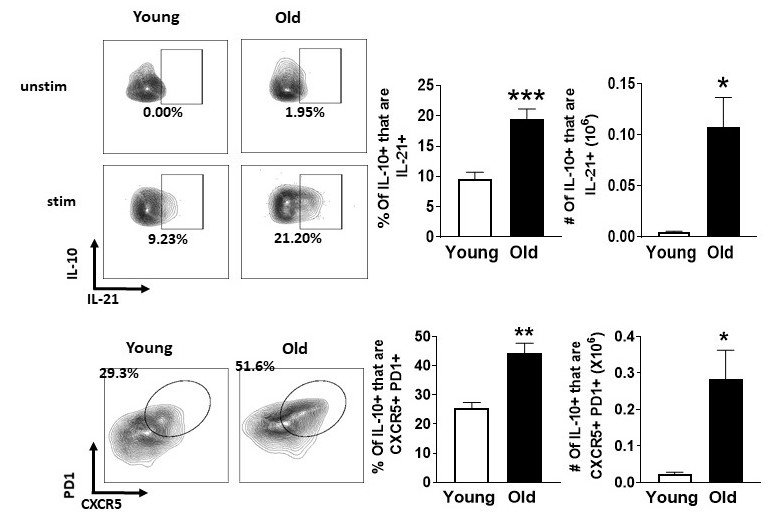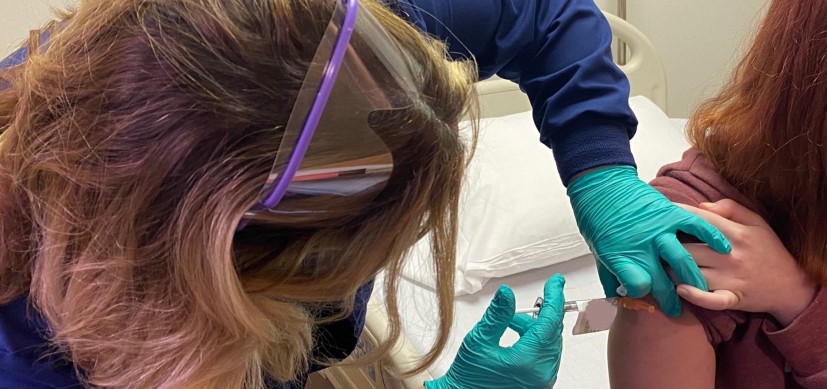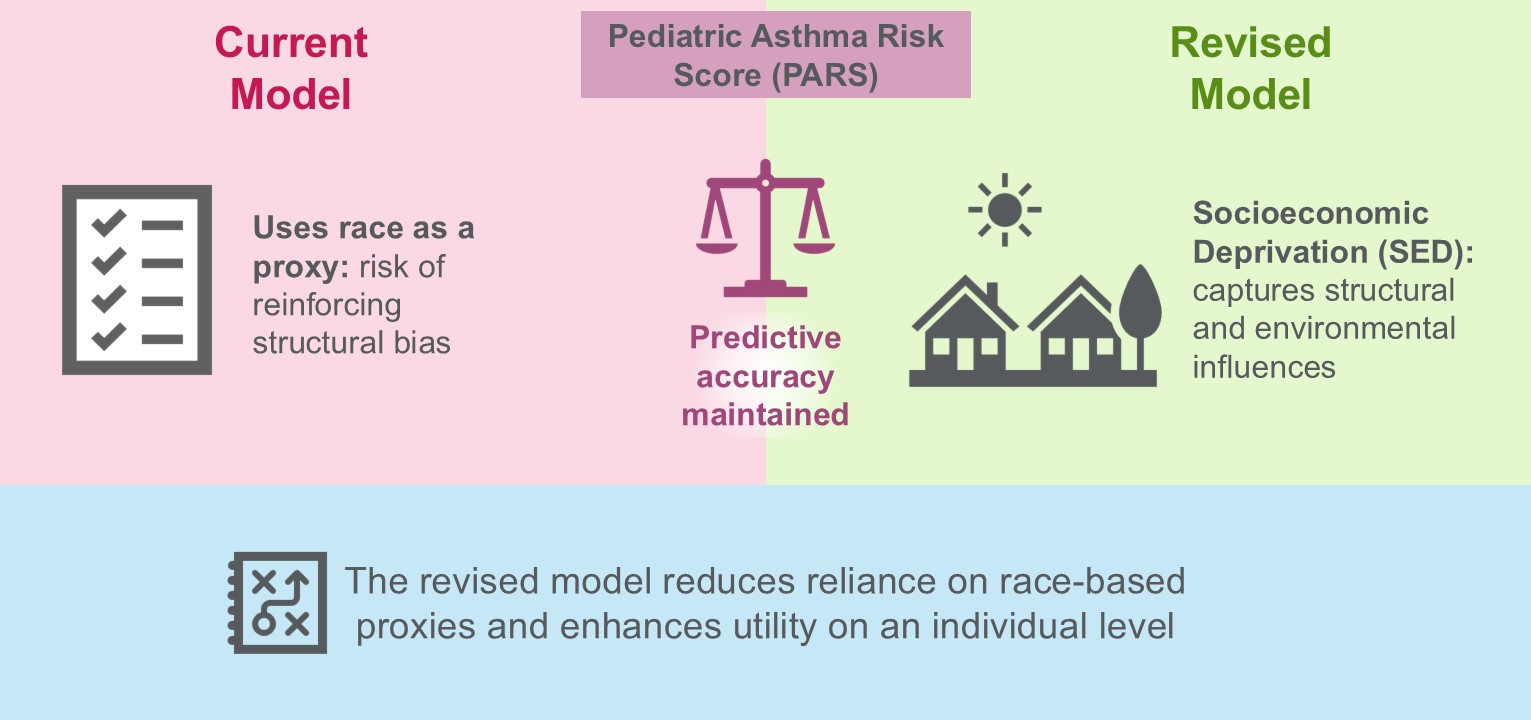New Concept for Boosting Flu Vaccine Power Also Might Apply to Future COVID-19 Vaccines
Research By: David Hildeman, PhD
Post Date: July 29, 2020 | Publish Date: July 29, 2020

A new study, published online July 29, 2020, in Science Advances, reports that one reason that influenza vaccines are less effective for seniors is that the immune system in the elderly is actively suppressed, not just weakened by age.
After more than five years of work and dozens of experiments, a large team of researchers at Cincinnati Children’s, the University of Cincinnati, and colleagues in Germany, Alabama and Indiana, have determined that this suppression is driven specifically by Interleukin 10-producing T follicular helper cells (Tfh 10 cells).
“These Tfh10 cells accumulate dramatically in our bodies as we age, and they have the effect of making older individuals less responsive to invading pathogens and less responsive to vaccines,” says corresponding author David Hildeman, PhD, Interim Director, Division of Immunobiology.
The good news: Results from mouse models suggest that this suppression can be reversed. Also, the method may apply beyond flu vaccines.
“Yes, it could. As the elderly do not respond well to multiple vaccines, it is highly likely that the elderly will also not respond as well as the young to new vaccines, either for COVID19 or other emerging pathogens,” Hildeman says.
Read the full news release
| Original title: | IL-10–producing Tfh cells accumulate with age and link inflammation with age-related immune suppression |
| Published in: | Science Advances |
| Publish date: | July 29, 2020 |
Research By








